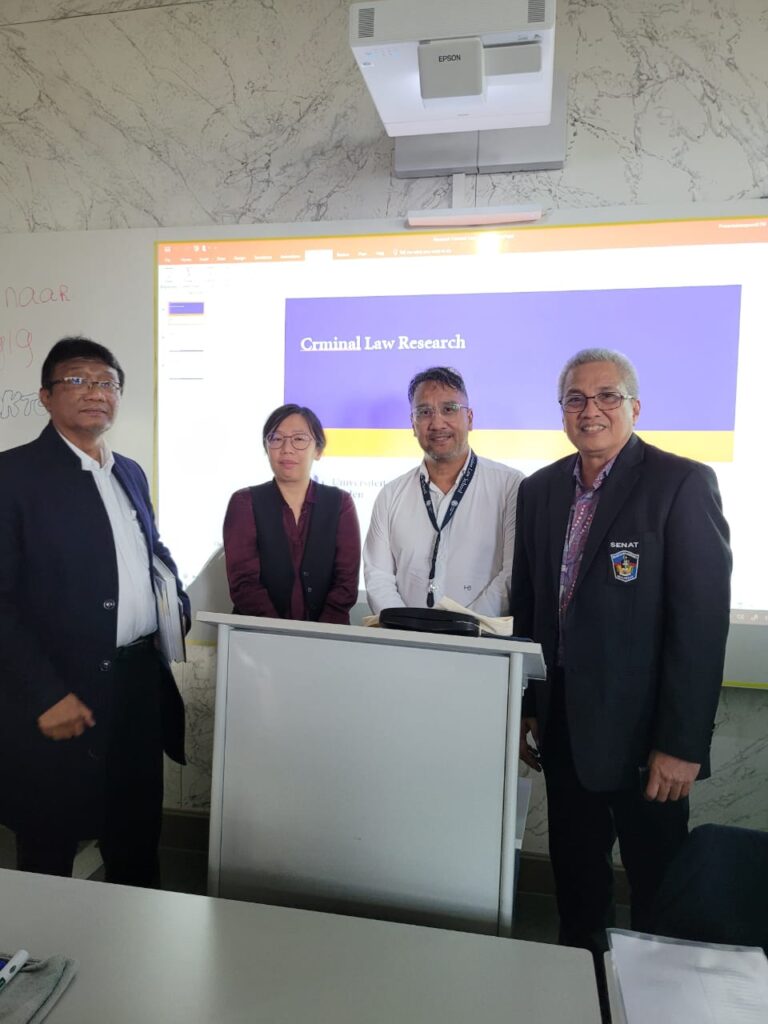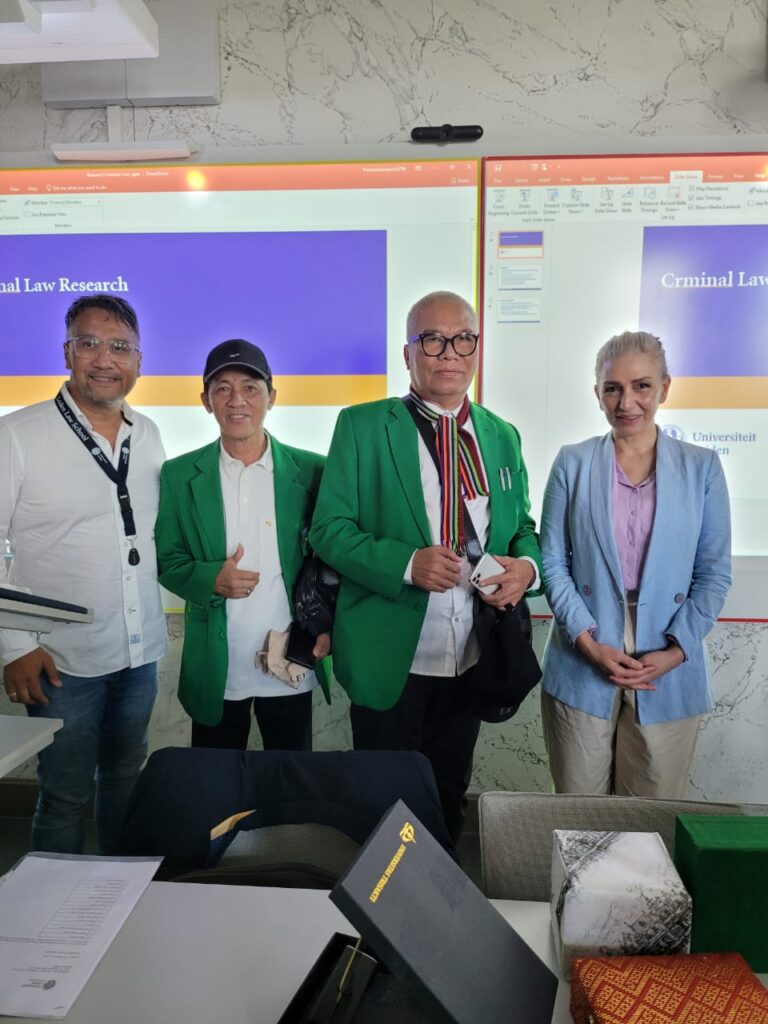Makassar.umi.ac.id.The delegation of Universitas Muslim Indonesia (UMI) was received by Anette Van Sandwijk, MA (Head of International Affairs Office), Santy Kouwagam, PhD (Van Vollenhoven for Law, Governance, and Development), and Bryan E. Beemer (Leiden University Libraries).
The delegation of UMI were Prof. Ir. Lambang Basri, PhD and Dr. Ir. Annas Boceng representing the Wakaf Foundation of UMI, Prof. Muhammad Hattah Fattah representing the leadership of UMI and also the Director of the Jusuf Kalla Research Center for Bugis-Makassar Cultural Studies of UMI. Additionally, the Faculty of Law of UMI was represented by Prof. Dr. La Ode Husen (Dean), Dr. Muhammad Rinaldy Bima (Vice Dean I), Dr. Baharuddin Badaru (Vice Dean III), and several faculty members.
The meeting began with a presentation by Leiden University representative regarding various policies related to research collaboration, a comparison of legal processes in Indonesia and the Netherlands, various priority issues for international research collaboration, and Leiden University’s support for manuscripts, books, and journals.

During the proposal presentation session for collaboration, the delegation from UMI, through Prof. Muhammad Hattah Fattah, presented two collaboration topics: (1) Reformulation of Democracy Format and (2) Leiden University’s support in providing manuscripts for UMI’s research collaboration with the National University of Singapore (NUS) on the topic of History and Maritime Civilization of Singapore.
Democracy in Indonesia adopts the system of the United States, which in practice has encountered several issues. Differences in economic and socio-cultural backgrounds have led to the need for a redefinition of the Democratic System in Indonesia by incorporating various cultural elements and local wisdom that have developed in Indonesian society and have been tested through various historical contexts and challenges.
The high costs of regional and national elections, as well as the potential for social conflicts and societal polarization, pose challenges to the implementation of democracy in Indonesia.
Indonesian society holds values and norms that have been practiced for a long time and have proven to create harmony and social cohesion in the diversity of religion, language, and customs.
Prof. Hattah emphasized that South Sulawesi society possesses a number of values and norms that can serve as pillars in strengthening democracy in Indonesia. The democratic values and norms of the Bugis-Makassar people predate the Social Contract Theory by J.J. Rousseau, known as the Father of Democracy.
The Bugis-Makassar society follows the norm of “rusa taro arung-tenrusa taro ade, rusa taro ade-tenrusa taro anang, rusa taro anang-tenrusa taro tomega”. With the support of experts and the availability of manuscripts, journals, and references related to Bugis-Makassar from Leiden University, these resources will play a crucial role in the reformulation of Indonesia’s democracy format becoming the largest high-quality democratic state.
The joint research with NUS on the History and Maritime Civilization of Singapore requires manuscript support. Currently, UMI, through the JK Research Center, has identified the Daeng Paduppa manuscript, which is currently preserved at NUS and will subsequently be translated into both Indonesian by JK Research Center and English by NUS researchers.

Maritime research on Singapore necessitates manuscript support that can be obtained from Leiden University. Santi and Bryan from the Van Vollenhoven Institute expressed their willingness to provide support related to manuscripts and involve experts. Prof. La Ode Husen stated that it is the time for UMI to become an internationally renowned university, in line with the aspirations of UMI’s founders 69 years ago
